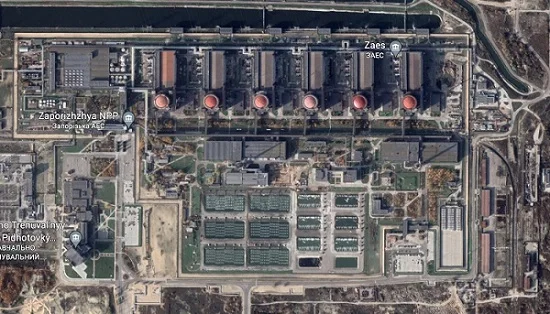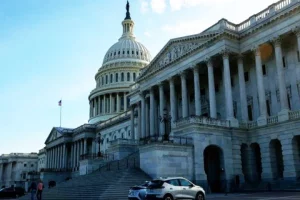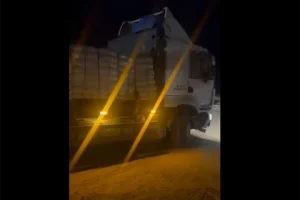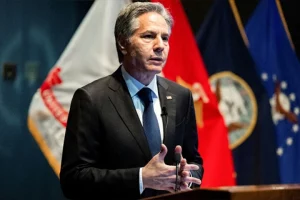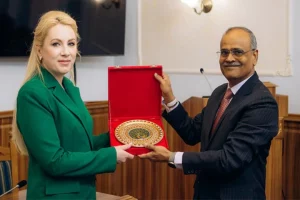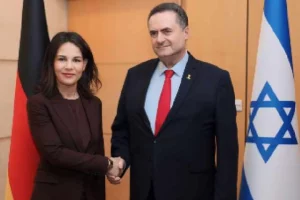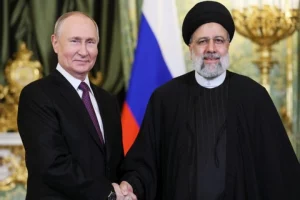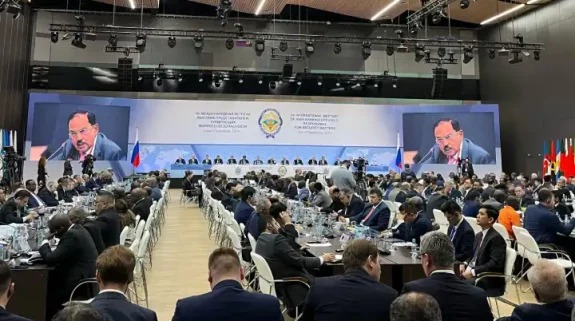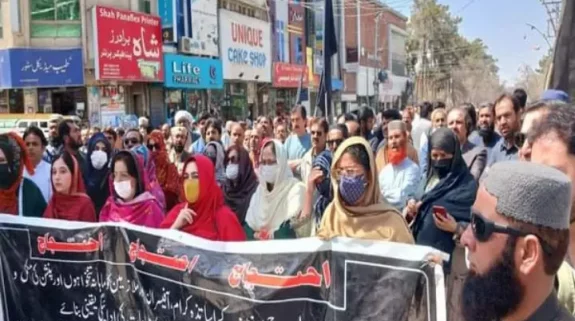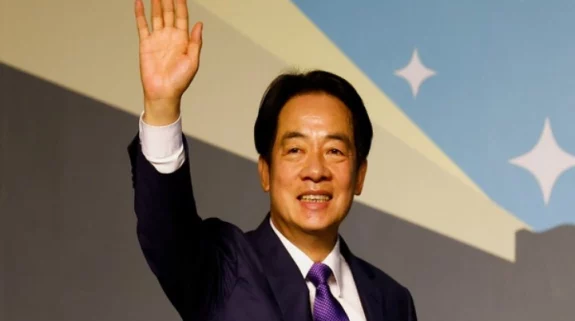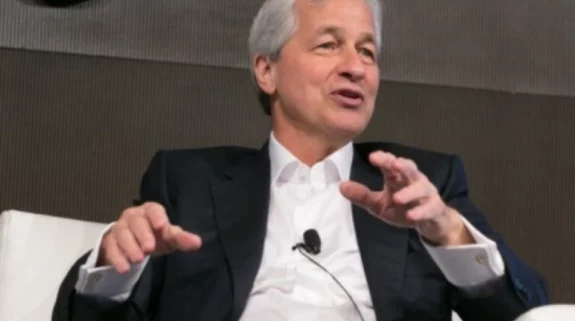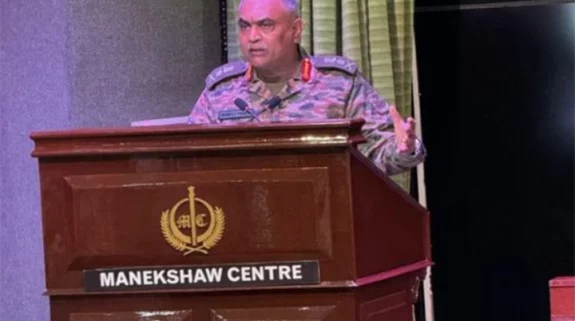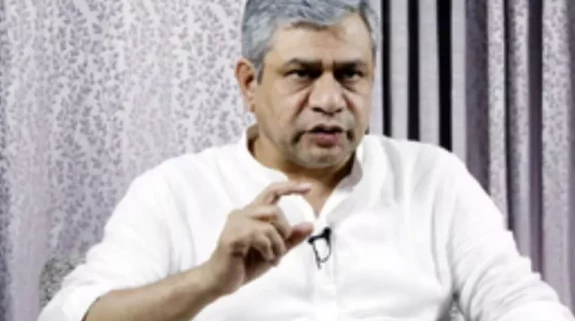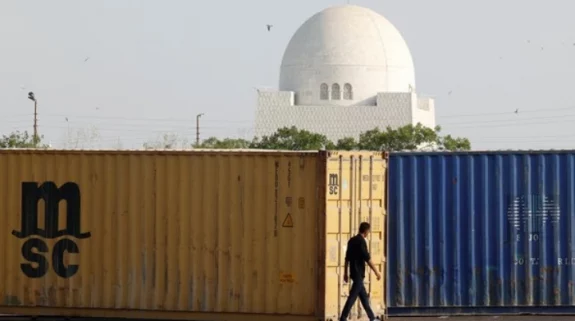Russian President Vladimir Putin and his French counterpart Emmanuel Macron once again spoke on Sunday evening, with the discussion centering around the safety of Ukraine's largest nuclear power in Zaporizhzhya which came under heavy assault earlier this week.
Putin, said a statement from the Kremlin after the phone call, told Macron that attempts to blame the Russian military for the Zaporizhzhya Nuclear Power Plant (ZNPP) incident are part of a "cynical propaganda campaign" as the provocation was arranged by Ukrainian radicals in the area with the involvement of a sabotage group.
The Russian President assured that the physical and nuclear safety of the plant is "well protected" as the Russian troops "in cooperation with the Ukrainian security unit and personnel" continue to ensure the operation of the nuclear power plant in the normal mode and the radioactive background remains normal.
"The Russian Armed Forces also control the Chernobyl Nuclear Power Plant. All this is done in order to exclude the possibility of provocations fraught with catastrophic consequences by Ukrainian neo-Nazis or terrorists," the statement added.

Putin and Macron had met in Moscow, last month (Image courtesy: Twitter/@EmmanuelMacron)
Macron, said Moscow, also forwarded to Putin today a proposal of the Director General of the International Atomic Energy Agency to hold a trilateral (IAEA-Russia-Ukraine) meeting in the Chernobyl zone to develop a mechanism for ensuring the safety of nuclear facilities in Ukraine.
"Vladimir Putin noted that in principle this idea could be useful, but it would be worth considering whether to hold such a meeting via videoconference or in a third country," said Kremlin's statement.
The Russian President's office also said that both leaders also discussed the issue of the evacuation of the civilian population from the areas of clashes.

French President Emmanuel Macron with Ukrainian President Volodymyr Zelenskyy (Image courtesy: Twitter/@EmmanuelMacron)
Putin also accused Kiev of not fulfilling the agreements reached on "such an acute humanitarian issue", saying that the Ukrainian side did not allow the evacuation from the cities of Mariupol and Volnovakha during the short ceasefire announced on Saturday.
"The pause in hostilities was again used only to build up forces and means in their positions. The President of France was again invited to work actively with the Kiev authorities in order to comply with the norms of international humanitarian law," Putin told the French President.
Israel says moral obligation to make efforts to end Ukraine-Russia conflict
Meanwhile, Israeli Prime Minister Naftali Bennett said today that his country has a "moral obligation" to make every attempt to end the ongoing conflict between Ukraine and Russia.
Bennett spoke with Ukrainian President Volodymyr Zelenskyy for the third time in 24 hours on Sunday afternoon after returning home from a whirlwind visit to Moscow and Berlin.
"I returned from Moscow and Berlin a few hours ago. I went there to assist the dialogue between all of the sides, of course with the blessing and encouragement of all players," Bennett said in his remarks at the start of the weekly Cabinet meeting on Sunday.
The Israeli PM said that the situation on the ground is not good and the human suffering is great and is "liable to be much greater" with also Israelis who need to return home and Jewish communities in distress that need help.
"Naturally, I cannot go into greater detail. We will continue to assist as needed. Even if the chance is not great — as soon as there is even a small opening, and we have access to all sides and the capability — I see this as our moral obligation to make every effort. As long as the candle is burning, we must make an effort and perhaps it will yet be possible to act," he added.

Israeli Prime Minister Naftali Bennett at the weekly cabinet meeting on Sunday (Image courtesy: Prime Minister's Office, Israel)
Bennett had flown to Moscow on Saturday and had a three-hour long meeting with Russian President Vladimir Putin.
The Kremlin later said that Bennett's visit was arranged by a "mutual arrangement".
"Russian President Vladimir Putin held talks with Naftali Bennett, during which they touched upon various aspects of the situation in Ukraine in the context of Russia’s special military operation to protect Donbass," said Putin's office.
Kremlin spokesman Dmitry Peskov had told Russian news agency TASS earlier that Bennett, who had spoken twice to Putin earlier – on February 27 and March 2 – suggesting in the very first conversation that his country would act as a mediator "to suspend hostilities."
After meeting Putin in Moscow, Bennett had flown straight to Berlin to meet German Chancellor Olaf Scholz who had visited Israel earlier this week.
Ukrainian President Volodymyr Zelensky also tweeted that the Israeli PM had called him after his meeting with Putin. "We continue dialogue," said Zelensky. The two leaders had also spoken on March 2.
Also Read: Why has Israel decided to mediate big-time in the Ukraine-Russia conflict?






